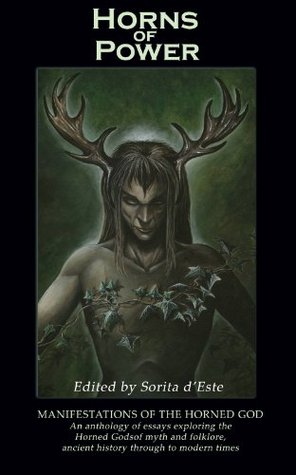More on this book
Kindle Notes & Highlights
The mystical symbolism inherent in nature influenced our ancestors, who saw the trees of the forest in the branch-like antlers of a stag, and the crescent moon in the horns of a bull. Horns represented the subtle as well as the manifest, with the spiral horns of the ram suggesting a journey into mystery.
That horns symbolised power in the ancient world is perfectly demonstrated in the tales of Alexander the Great. He was often depicted with horns emphasising his great martial prowess and supremacy as a leader, whilst at the same time hinting at his divine origins and authority. Indeed as a result of this association he was sometimes called Karnayn which means 'horned'.
Cernunnos is now generally believed to be derived from the proto-Indo-European root *krno-. This is the same word that gave rise to the Gallic cernon, the Welsh carn, the Latin cornu and the Germanic *hurnaz, all of which mean horn. The Latin cornu also gave rise to words such as cornucopia (the horn of plenty) and coronet (a small crown). This latter is particularly interesting, as it indicates the position of horns at the crown, and also links the horns to royalty, reminding us of the old adage that “the king and the land are one”. From the same original word comes the Greek word
...more
Amongst the inscriptions are ninety-four inscriptions to five horned gods. These horned gods, worshipped by the Celts, were Antenocitus (three), Belatucadros (twenty-six), Camulos (one), Cocidius (twenty-four), and Vitiris (forty). Significantly all of these
Antenocitus is a god the meaning of whose name is unknown. The remains of a statue of him show a torc and stag horns. He was linked with Mars by the Romans.
Cocidius may mean ‘the Red One’,
He was worshipped by the Romans as a warrior god, and in this respect was associated with Mars. He was also associated with the Roman forest god Silvanus, probably as a hunting god, as images of him show him hunting animals such as boars, hares and stags. Images also show him with a short cape, spear and shield, which fitted with his role as a soldier god. Vitiris is a bull-horned god, the meaning of whose name is unknown. It has been suggested the name could be derived from the root ‘witsu’ meaning ‘knowing’, and giving a meaning of something like ‘the Wise One’. Alternatively it has also
...more
As one of the oldest of the Egyptian gods, Khnum has always fascinated me.
semi-anthropomorphic form with a human body and long-horned ram head, wearing a long tripartite wig and a short kilt. Khnum was particularly associated with the first cataract of the river Nile, and he was said to control the inundation of the Nile from its source.
this
The Isles of the Many Gods by Rankine and d'Este.
"Out of the spirals, out of the mist, Out of the house of death, the Horned One rises… Out of sleep, out of stone, out of the womb, The Horned One rises, He cometh to lead the Hunt, he cometh to lead the Dance…”
John Masefield’s “The Box of Delights” features “Herne the Hunter” (and that was made into a BBC series in the Eighties too), he appears briefly as a figure with a mix
“The Horned God” isn’t necessarily connected to all these aspects of maleness, but horns do give him a strong link to the role of King, and in myth that means Sacrifice. Having a King serve for a time and then ritually killing him is a common idea.


